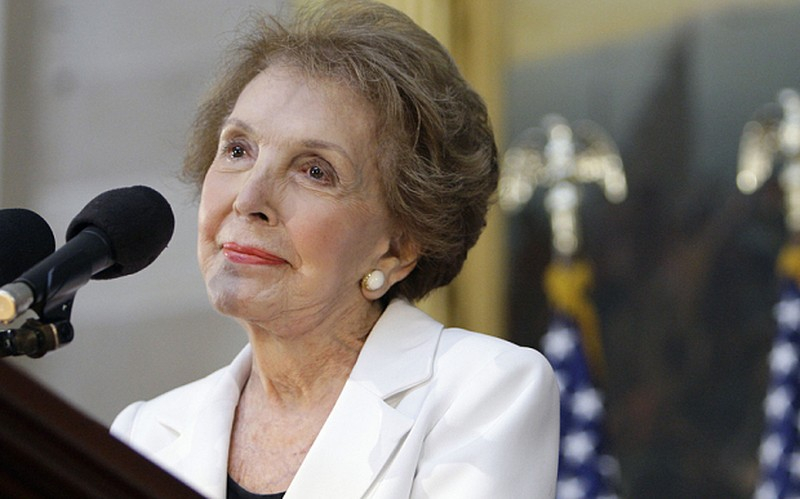Nancy Reagan bucked conservatives when it came to stem cells
Ronald Reagan was diagnosed with Alzheimer's disease five years after leaving office in 1994. You can read his letter to the American public in which he announced his diagnosis here. It is debatable whether Reagan was affected by the disease during his presidency. A case study published last year discovered that the president's vocabulary shrank during his presidency, a condition often associated with dementia.
'Nancy Reagan took private conversations and threw them out into the public sphere, and in so doing created a tremendous awareness for Alzheimer’s disease that she then leveraged politically.' - Hans Keirstead, a pioneer in stem cell research. Nancy Reagan became an advocate for Alzheimer's research after her husband's diagnosis. Mrs. Reagan was instrumental in establishing the Ronald and Nancy Reagan Research Institute, an Alzheimer's Association affiliate, in 1995.
The New York Times labeled Nancy Reagan a "stealth lobbyist" against the severe restrictions President George W. Bush imposed on stem cell research the previous year in 2002, years after Ronald Reagan's illness forced him out of public life. These were overturned by President Obama shortly after taking office, a decision Republicans strongly opposed but Reagan praised.
NPR spoke with stem cell pioneer Hans Keirstead about Nancy Reagan's stem cells heterodoxy within the conservative movement: "Nancy used the power of her position, you know, unapologetically, very responsibly to not only bring awareness to Alzheimer's research but also awareness to the tools that might benefit Alzheimer's," Keirstead said. "There was a lot of ignorance about where these cells came from, how they were procured, how they were used. She brought clarity to that by using her position, influencing senators, congressmen, politicians of all sorts as well as the federal government's funding agencies like the National Institutes of Health."








